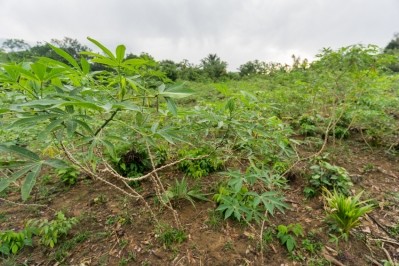No Zika vaccine before Rio Olympics: Grant funded-development at early stage says US NIAID

Epidemiologists are yet to determine how has Zika spread from Uganda, Africa – where it was first identified in 1947- to South America. The suspicion is that the virus made its way to Asia in infected travellers and then island-hopped across the Pacific over the next five decades.
This theory is supported by the detection of the mosquito-borne virus in travellers who have returned to the UK from South America.
Public Health England told us: "As of 25 January 2016, a total of 6 cases have been diagnosed in UK travellers" explaining that the three people found to have the infection this year had visited Columbia, Mexico and Venezuela.
Zika virus has also been detected in several US travellers.
Brazilian outbreak
Zika was first detected in Brazil last summer (Ministry of Health announcement in Portuguese).
However, the outbreak only started to attract global attention after the PAHO linked it to an increase in the number of microcephalic babies born in Brazil and Guillain–Barré syndrome (GBS) cases in El Salvador.
Several countries struck by the outbreak - specifcially Columbia, El Salvador and Jamaica – have advised women to delay getting pregnant.
Other countries – including the US - have advised pregnant women to consider postponing travel to the region.
Vaccine development
At present there is no vaccine against Zika infection, although several candidates are now being developed.
Last week, the US National Institute of Allergy and Infectious Diseases (NIAID) made grants available to support Zika vaccine research.
The NIAID told us “Several NIAID-supported Zika vaccine efforts already are under way, including live-attenuated vaccines, DNA vaccines and VSV-vectored vaccines. The NIAID Vaccine Research Center is evaluating a DNA approach based on its experience with West Nile Virus.”
It added that: “Several vaccine manufacturers and researchers already have contacted NIH to express interest in developing Zika vaccines” and urged any researchers with experience working with related viruses to apply for a grant.
The NIAID said it would also consider supporting Zika vaccine manufacture, explaining that under its “preclinical services programme [the] NIH has gap-filling resources for vaccine development that could be utilized to evaluate and manufacture a Zika vaccine candidate.”
Olympian task
Brazil is due to host the Olympic Games in Rio de Janeiro in August and is preparing for the arrival of thousands athletes and hundreds of thousands of spectators from all over the world.
None of the vaccines being developed with the support of the NIAID are likely be ready before the games begin.
The US organisation told us: “NIAID’s Zika vaccine development efforts began two months ago. Researchers will need time to produce and evaluate candidate vaccines for safety and immunogenicity in animals and people. A specific time frame is not available.”
Mosquito prevention
In the absence of a vaccine, the Brazilian Government has deployed 220,000 troops to hand out leaflets explaining how citizens can help stem the spread of Zika.
The soldiers will also take part in efforts to eradicate the Aedes aegypti mosquito that is responsible for the spread of Zika and of the viruses that cause dengue fever and yellow fever.
At present there are no plans to cancel or postpone the Olympics.
The International Olympic Committee told us: “Rio has a plan in place to ensure that there is no stagnant water in or around the venues thus minimizing the risk for visitors to come into contact with the mosquitos that carry the virus.
“It is also important to note that the Games will take place in the winter months in Brazil, when the dryer and cooler climate significantly reduces the presence of mosquitos. We will continue to monitor the situation and follow the relevant guidance of the authorities.”






















